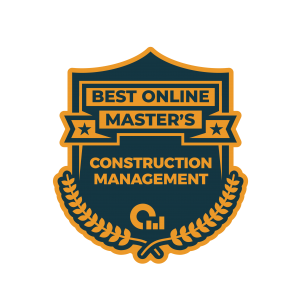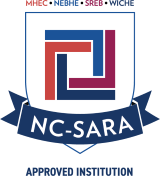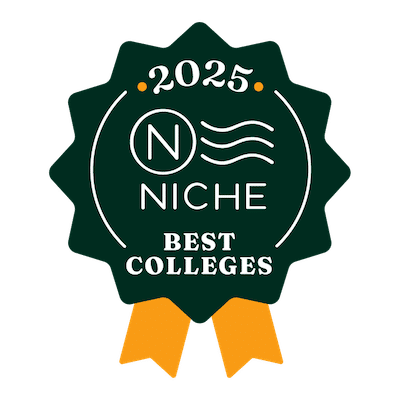What is the Difference Between Homeopathy and Naturopathy?
You may be wondering, “What is the Difference Between Homeopathy and Naturopathy?” In today’s world, alternative medicine is becoming increasingly popular as people seek alternative ways to heal their bodies. Naturopathic medicine and homeopathic medicine are two alternative medicine modalities that are gaining recognition. Naturopathic medicine is a form of alternative medicine that emphasizes using natural remedies to support the body’s natural healing abilities. On the other hand, homeopathic medicine is a form of alternative medicine that uses highly diluted substances to stimulate the body’s natural healing abilities.
This blog post will explore the differences between these two modalities and how they differ from conventional medicine. We will also take a closer look at botanical medicine, a significant component of naturopathic and homeopathic medicine.
So, whether you are curious about the differences between homeopathy and naturopathy or interested in exploring alternative medicine, keep reading to learn more!
What is Homeopathy?
Homeopathy is a form of alternative medicine that originated in the late 18th century in Germany. It is based on the medical philosophy that “like cures like,” meaning that a substance that causes symptoms in a healthy person can be used to treat similar symptoms in an ill person. Homeopathic remedies are highly diluted substances derived from plants, minerals, and other sources.
The holistic approach of homeopathy means that the practitioner considers the whole person, including their physical, emotional, and mental health, when diagnosing and treating a condition. The goal is to stimulate the body’s natural healing processes rather than simply masking symptoms.
Classical homeopathy is the most common form of homeopathy practiced today. In this approach, the practitioner takes a detailed case history and selects a remedy based on the patient’s unique symptoms and overall constitution. The remedy is typically given in a highly diluted form, with the idea that the more dilute the remedy, the more potent its healing properties become.
Homeopathic remedies are generally safe and non-toxic, making them an attractive alternative to conventional medicines. However, the scientific evidence supporting the effectiveness of homeopathy is limited, and the medical community does not widely accept it.
Despite this, many people still seek out homeopathic practitioners for a variety of conditions, including allergies, digestive issues, and chronic pain. Homeopathic remedies are often used alongside other holistic therapies, such as acupuncture and massage, to promote overall wellness.
Homeopathy in Practice
To become a homeopathic practitioner, one must complete specialized training and obtain a license or certification in their state or country. The training typically includes courses in anatomy and physiology and specific training in homeopathic philosophy and practice.
In modern homeopathic practice, the use of technology has become increasingly common. Some practitioners use computer software to help select remedies based on a patient’s symptoms, while others use electronic devices to prepare remedies.
What is Naturopathy?
Naturopathy is a form of alternative medicine that emphasizes using natural substances and practices to promote healing and prevent disease. It originated in the 19th century as a reaction to the harsh medical practices of the time, which often involved invasive surgeries and toxic drugs.
Naturopathy is based on the belief that the body has an inherent healing power that can be stimulated through natural means. Naturopathic doctors focus on identifying and addressing the root cause of a patient’s illness rather than simply treating the symptoms. They use a wide variety of natural therapies, including herbal medicines, acupuncture, massage, and dietary changes, to promote healing and restore balance to the body.
Naturopathy In practice
Naturopathic medicine is a form of medicine that is recognized by the World Health Organization and is regulated in many countries. Naturopathic doctors undergo specialized training and education to become licensed medical professionals, and they must adhere to strict standards of practice and ethics.
The modern naturopathic practice combines traditional healing methods with modern science and technology. Naturopathic physicians use advanced laboratory testing and diagnostic tools to assess a patient’s health status, and they may also incorporate conventional medical treatments when necessary.
Herbal medicines are a central component of naturopathic medicine, and many naturopathic doctors are trained in botanical remedies. These natural substances are believed to have a variety of healing properties. They can treat a wide range of conditions, from chronic pain and inflammation to anxiety and depression.
In addition to herbal medicines, naturopathic physicians may also use other natural therapies, such as nutritional supplements, homeopathy, and hydrotherapy, to promote healing and wellness. They may also provide guidance on lifestyle factors, such as diet and exercise, to help patients optimize their health and prevent disease.
Philosophical Differences
The fundamental difference between homeopathy and naturopathy is the foundation of their philosophies. While both practices believe in preventative care and holistic lifestyles, they are philosophically diverse.
Homeopathy follows the philosophy of treating symptoms to help the body fight diseases. Homeopathic practitioners believe that symptoms are the body’s way of communicating the necessary steps to cure what’s ailing the individual. The goal is to identify the correct remedy to alleviate the symptoms.
Naturopathy follows six basic principles, including the philosophy of “Do not harm,” which emphasizes the use of non-invasive and least toxic treatments, and “The healing power of science,” which believes in the body’s ability to heal itself. Other principles include identifying and treating the cause of the disease, educating patients to take responsibility for their own bodies, treating the whole person, and emphasizing prevention.
Both homeopathy and naturopathy use natural treatments to achieve optimal health. Naturopathic doctors use a wide range of non-invasive treatments, including herbal medicines, nutritional supplements, acupuncture, and hydrotherapy. Homeopathy uses minute doses of natural substances to stimulate the body’s healing power.
Naturopathic doctors have a broader scope of practice than homeopathic practitioners. They use whatever medical means they deem necessary to achieve the goals of holistic medicine. Naturopathy also emphasizes the importance of lifestyle factors, family history, mental and emotional factors, and their effect on the patient.

Enroll in Everglades University’s School of Alternative Medicine
Understanding the difference between homeopathy and naturopathy is essential for anyone pursuing a career in alternative medicine. While both practices share a common foundation of holistic healthcare and preventative care, their philosophies and treatment modalities differ.
Suppose you are interested in pursuing a career in alternative medicine. In that case, Everglades University offers a Bachelor’s program in Alternative Medicine to provide you with the knowledge and skills to succeed in this growing field. The program is designed to prepare students for careers in various alternative medicine disciplines, including homeopathy, naturopathy, acupuncture, and herbal medicine.
The Alternative Medicine Bachelor’s program at Everglades University offers a comprehensive curriculum that covers the fundamental principles of alternative medicine, including holistic healthcare, natural treatments, and non-invasive methods. The program also provides students with hands-on experience through clinical training and internships, preparing them for real-world challenges.
By enrolling in Everglades University’s Alternative Medicine Bachelor’s program, you can gain the necessary knowledge and skills to pursue a rewarding career in alternative medicine. You can learn from experienced faculty members who have years of experience in the field and are passionate about sharing their knowledge with students.
Don’t wait any longer to pursue your passion for alternative medicine. Enroll in Everglades University’s Alternative Medicine Bachelor’s program today and start your journey towards a fulfilling career in this exciting field.












